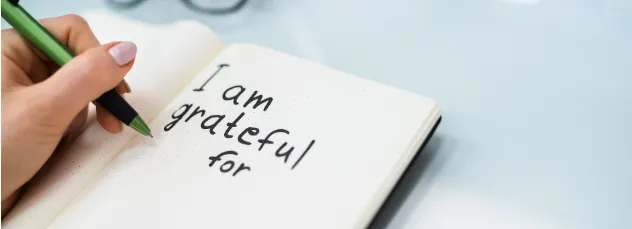Hey there, ADHD friends! Today, I want to talk about something that can have a tremendous impact on our lives – gratitude. Now, I know what you’re thinking, “Gratitude? Really?” But trust me, it’s worth exploring. So, let’s dive right in and unlock the benefits of gratitude for those with ADHD.
First things first, what exactly is gratitude? Simply put, gratitude is the practice of recognizing and appreciating the good things in our lives. It’s about shifting our focus from what’s going wrong to what’s going right. And let me tell you, this shift in perspective can work wonders for individuals with ADHD. The really cool thing is that scientific research supports the positive impact gratitude has on our brains. When we practice gratitude, our brains release a surge of serotonin and dopamine. Two awesome brain chemicals that make us feel good and perform better. As we develop a more consistent gratitude practice, we can make permanent positive changes to our brain. So, surprisingly, gratitude is an amazing natural med to add to our ADHD toolbox!
Some benefits include:
Improve Focus, Motivation, and Performance.
Gratitude helps us to appreciate the progress we’ve made and the things we’ve accomplished. By acknowledging and celebrating these small wins, we are naturally motivated to keep pushing forward. Plus, gratitude helps us stay focused on what really matters, reducing distractions and increasing productivity.

Savor the moment.
Being present in the moment is especially difficult when you have a race car, easily distracted brain. However, gratitude activates our braking system allowing us to pause, pay attention, and enjoy the experience more fully.
Boost of Happiness and Positive Emotions.
When we consciously practice gratitude, we train ourselves to notice the positives around us. This amplifies our overall happiness and fosters a more positive mindset. Research has shown that individuals who frequently express gratitude experience higher levels of joy and contentment.
Protect from Anxiety and Depression.
Gratitude acts as a shield against anxiety and depression, the two most common ADHD coexisting conditions. When we focus on what we’re grateful for, it becomes harder for negative thoughts to take over. Cultivating gratitude has been found to reduce stress levels, increase resilience, and enhance overall mental well-being.

Get Better Sleep.
Many individuals with ADHD struggle with sleep issues, and that’s where gratitude comes to the rescue. By practicing gratitude before bed, we slow down our fast brains and shift our thoughts from worries and frustrations to positive reflections. This leads to a calmer mind, promoting a more restful and rejuvenating sleep.
Build Self-Esteem
Your self-esteem can really take a beating when you have ADHD. There’s a frightening statistic that the average child with ADHD has been subject to an estimated 12,000 more negative messages by the age 18 than their neurotypical peers. Extend that pattern into adulthood and damage to self-esteem can be staggering. Nonetheless, when we begin to notice our acknowledge our own strengths and achievements large and small we can erect a powerful weapon to deflect this negativity and cultivate positive self-esteem.
Grow Stronger Relationships
Expressing gratitude towards others strengthens our connections and fosters a sense of community. Recognizing the support we receive and acknowledging it with gratitude not only deepens our relationships but also improves our own self-esteem, leading to a more positive self-image.
Okay, so now that we know about the incredible benefits of gratitude, here are a few practical strategies to cultivate more of it in our lives:

1. Gratitude Journal:
Set aside time each day to write down three things you’re grateful for. They can be big or small, specific or general. It’s all about training your mind to focus on the positives.
2. Gratitude Jar:
Fill a jar with small pieces of paper, and on each one, write something you’re grateful for. Whenever you’re feeling a little down or overwhelmed, grab a paper from the jar and reflect on it.
3. Thank You Notes:
Take a few moments each week to write a thank-you note or send an appreciation email to someone who has made a positive impact in your life. It not only makes their day but also increases your own sense of gratitude.
4. Gratefulness Reminder:
Set reminders on your phone or place sticky notes around your living space as visual prompts to pause and practice gratitude throughout the day.

5. Gratitude Walk:
Go for a walk in nature and intentionally focus on appreciating the beauty around you. Pay attention to the sounds, scents, and sights, and let yourself feel gratitude for the natural world.
Remember, developing a mindset of gratitude is a journey. With time and practice, you’ll notice the incredible impact it can have on your overall well-being and daily life. So, let’s embrace the power of gratitude, my ADHD friends, and unlock a world of positive change!

